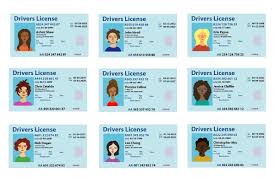Fake identification market
Outline with Content Suggestions
I. Introduction
- Objective: Set the stage by discussing the concept of fake identification, the contexts where it appears, and the ethical concerns surrounding it.
- Content:
- Define what constitutes a fake ID and differentiate between types (replica, altered, etc.).
- Introduce why the fake ID market exists—ranging from underage access to restricted areas to individuals avoiding surveillance in some countries.
- State the need to analyze this market, not as an endorsement, but as an exploration of the phenomenon, its implications, and its impact.
II. Market Overview
- Objective: Give a general overview of the fake identification market size, geographical spread, and growth trends.
- Content:
- Size and Scope: Estimate the market size globally, with a focus on major regions, and discuss the revenue generated in this shadow industry.
- Historical Perspective: Provide a brief history of fake IDs and their evolution with technology (moving from simple laminated cards to sophisticated replicas with security features).
- Technological Impact: Discuss how the internet and darknet marketplaces have transformed accessibility, making fake IDs easier to acquire than before.
III. Product Analysis
- Objective: Describe the product features that define quality in fake identification and the specifics that consumers typically look for.
- Content:
- Product Features: Discuss elements that increase believability, such as holograms, barcodes, magnetic strips, and UV details.
- Quality Differentiators: Explain the differences between low-quality, mid-range, and high-quality fake IDs and how these are priced accordingly.
- Sources and Methods of Production: Explore how the production process varies, from in-home setups to complex operations that use industrial-grade machines.
IV. Market Segmentation and Target Audience
- Objective: Identify the main demographics that use fake IDs, discussing their motives, needs, and purchasing behavior.
- Content:
- Underage Access to Services: Describe younger audiences seeking access to age-restricted areas (e.g., alcohol, clubbing).
- Professional and Personal Anonymity: Discuss individuals using fake IDs for privacy or anonymity, such as in countries with heavy surveillance.
- Illegal Immigration and Employment: Mention how fake IDs can be part of larger issues related to illegal work and immigration.
- Personality Traits and Behavior: Consider profiling behaviors and attitudes that typically accompany the purchase of a fake ID—risk tolerance, perceived needs, and underlying motivations.
V. Channels of Distribution and Acquisition Methods
- Objective: Explain how consumers find and acquire fake IDs, exploring legal and technological aspects of distribution.
- Content:
- Online Marketplaces and Darknet: Analyze the role of the dark web and anonymous online forums in connecting buyers and sellers.
- Social Media and Messaging Apps: Describe how social media has become a low-barrier channel for sellers to advertise and attract new users.
- Counterfeit Industry Services: Investigate the professionalization of fake ID services, from customer support to refund policies, as if mimicking legitimate businesses.
VI. Legal and Ethical Considerations
- Objective: Outline the legal risks associated with fake identification, from production to usage, and explore the ethical challenges.
- Content:
- Legal Risks for Users and Producers: Detail consequences such as fines, criminal records, and potential imprisonment.
- Privacy and Security Concerns: Discuss how fake IDs undermine regulatory security measures and the risk to personal data security.
- Ethical Concerns: Explore moral issues related to fraudulent identification, impacts on businesses, and society’s challenge to balance freedom and security.
VII. Market Drivers and Trends
- Objective: Highlight factors contributing to market demand and discuss key trends influencing the fake ID market.
- Content:
- Social and Economic Drivers: Explore how economic disparity, educational constraints, and social pressure fuel demand.
- Technological Advancements: Describe how technology like AI and high-quality printing influences product sophistication.
- Regulatory Pressures: Detail how governments are responding with new regulations and ID technologies to counter fake IDs.
VIII. Future Outlook and Challenges
- Objective: Predict the future of the fake ID market, covering potential developments and obstacles.
- Content:
- Technological Countermeasures: Discuss anticipated advancements in biometric IDs, blockchain ID systems, and other digital solutions.
- Legal and Social Challenges: Consider how legislation might evolve to make it harder to obtain and use fake IDs.
- Public Education and Prevention: Explore the role of awareness campaigns and educational initiatives to deter fake ID use, especially among youth.
IX. Conclusion
- Objective: Summarize key insights and leave readers with a reflective thought on the subject’s complexity.
- Content:
- Recap the main points from each section, emphasizing the societal and ethical dilemmas posed by fake IDs.
- Highlight the unpredictable nature of this market, the ongoing battle between counterfeiters and regulators, and the role of technology in shaping this dynamic.
Related News
Read More >>
 ID cards
ID cards
This article provides an in-depth look at the ID card industry, covering essential features, securit...
 How to Get a Delaware Fake ID
How to Get a Delaware Fake ID
Explore the ins and outs of obtaining a Delaware Fake ID. This comprehensive guide covers everything...
 Fake Identification
Fake Identification
This guide delves into the realm of fake identification, exploring its purpose, features, and the ma...
 Buy Delaware Fake ID
Buy Delaware Fake ID
This guide provides essential insights into buying a Delaware Fake ID, including its features, the p...